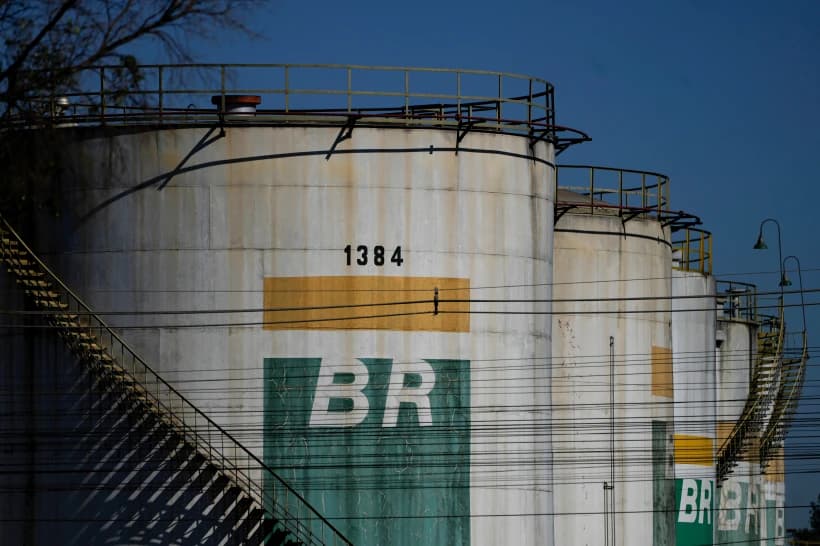SÃO PAULO – A decision by the Brazilian environmental agency’s to allow oil exploration near the mouth of the Amazon River is spurring controversy among Church activists in Brazil.
The measure announced by the Brazilian Institute of Environment and Renewable Natural Resources (known by the Portuguese acronym IBAMA) on Oct. 20 put an end to over a decade of debates.
The first attempt of licensing oil exploration in the so-called Equatorial Margin – an area that extends from the Amazonian Amapá State to Rio Grande do Norte State, in the Northeastern part of the country – was in 2014, during former President Dilma Rousseff’s second term.
Since President Luiz Inácio Lula da Silva took office in 2023, there has been a tug of war between different branches of his administration over the project. Powerful ministers more connected with economic areas defend it, while environmental and social areas reject the idea.
IBAMA’s decision allows Petrobras, the state oil company, to drill pits in the region and search for oil. The exploration phase should begin immediately and take up to five months. If the presence of oil is confirmed, exploitation will require new licenses.
Among civic organizations, environmentalist groups and Church activists have been vocal about the need to cancel such a plan.
One of the ecclesial groups that has been condemning the measure is the Bishops’ Conference’s Integral Ecology and Mining Commission, which released a statement with fierce criticism of the decision on Oct. 21.
The commission said allowing more oil drilling contradicts the commitments taken during the 2015 United Nations Climate Change Conference (COP21), held in Paris. The measure also harms Brazil’s credibility as the host nation of the upcoming COP30, which will occur in Belém, Pará state, between Nov. 10-21.
“Two years ago, Pope Francis, in the exhortation Laudate Deum on the climate crisis, warned: ‘Gas and oil companies are planning new projects, with the aim of further increasing their production. (…) This would mean exposing all humanity, especially the poorest, to the worst impacts of climate change’,” the letter read.
The document emphasizes that the Brazilian government’s decision disrespects guidance from the Intergovernmental Panel on Climate Change and from the Brazilian Society for the Advancement of Science.
“New oil ventures bring a double consequence: the first is an increase in global warming, with direct impacts on the Brazilian climate, more frequent extreme weather events, enormous costs in managing environmental crises, and higher food prices,” the commission explained, adding that the second one is “the risk of environmental accidents, as the Equatorial Margin is a highly sensitive region, and strong ocean currents increase the likelihood of oil spills and environmental disasters.”
The letter mentioned Pope Leo XIV’s apostolic exhortation Dilexit te, saying that the commission will continue “to denounce “the dictatorship of an economy that kills,” standing “in solidarity with the peoples and communities that advocate for a different relationship with the land – in the countryside, the forest, the waters, and the cities – for an economy that progressively moves beyond predatory extraction.”
According to Italian-born Father Dario Bossi, one of the members of the commission, the group had been accompanying the environmental licensing controversy for years and was “surprised and disappointed” by the moment chosen by the government to announce the approval.
“The government certainly has its intentions, connected to political alliances and agreements. But that decision discredits and weakens Brazil’s stance for the COP30,” Bossi told Crux.
He said that the Brazilian episcopal conference has asked the commission to inform the bishops about that and other environmental controversies on a number of occasions, but there’s still a long way to go in terms of becoming fully aware of what such challenges represent.
On Nov. 12, Minister of the Environment Marina Silva is expected to attend a Church symposium in which oil drilling will be discussed. Silva, a long-time environmental activist who worked side by side with Amazonian martyr Chico Mendes (1944-1988), has been visibly upset about the oil exploration plan in the Equatorial Margin. She attended the celebrations of the 10th anniversary of the encyclical Laudato si’ in Rome and had a private audience with Leo on Oct. 1.
“We’ve been talking with Marina Silva continuously about those challenges and the COP30. We hope we’ll be able to express the Church’s repudiation of the project – which will represent, at the same time, a kind of moral support to her,” Bossi said.
Bossi and other groups that will take part in the Peoples’ Summit, which will occur in parallel with the COP30, hope to put pressure on the government so the plan can be suspended. But it has been defended by Lula himself on different occasions. He claims that the production of oil in the region will benefit the Brazilian people and can also be used to fund energy transition.
Another Church organization that has been manifesting its disagreement with the idea is the Bishops’ Conference’s Fishermen Pastoral Council (known as CPP). The ministry has warned the authorities that oil drilling in the mouth of the Amazon will have terrible impacts on local fishing communities and biomes.
“Unfortunately, powerful politicians are backing the project. We have the example of other areas in which oil drilling was allowed – and the consequences for traditional fishermen were very negative,” Gilberto Lima, CPP’s executive coordinator, told Crux.
He recalled that even technical branches of the government, like the Ministry of Mines and Energy, have been saying that the new oil blocs can fund energy transition in Brazil, which “is a fallacy, according to experts.”
“We have communities in the Southeastern part of the country where traditional fishermen have to work in the middle of oil. Their whole fishing ground smells like oil. That’s what will happen in the mouth of the Amazon, we know that,” he said.













